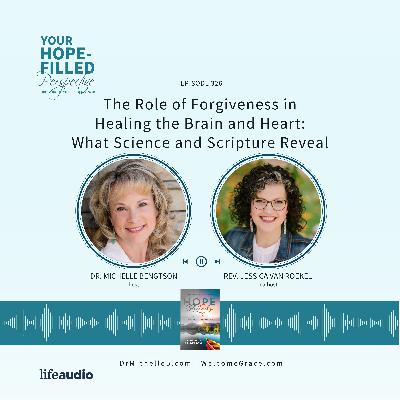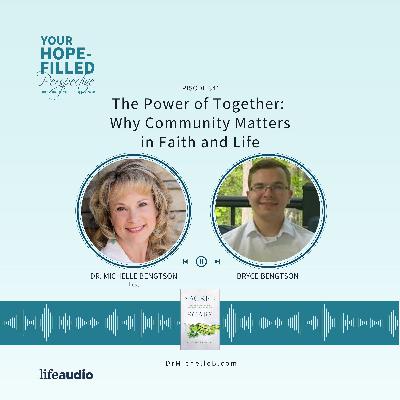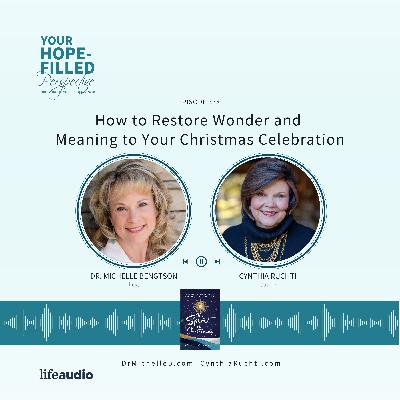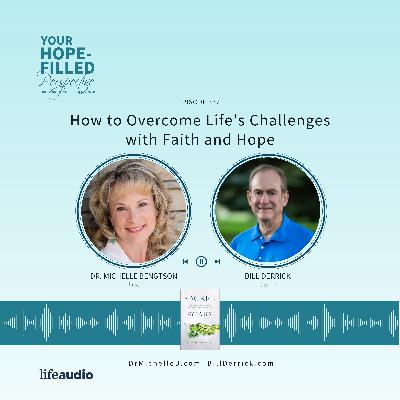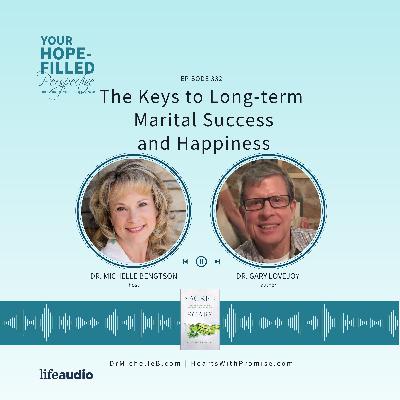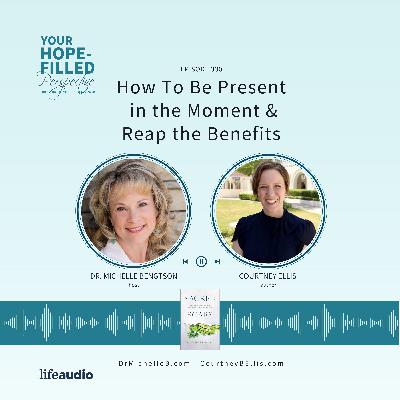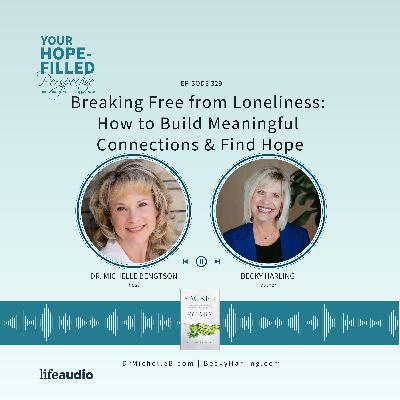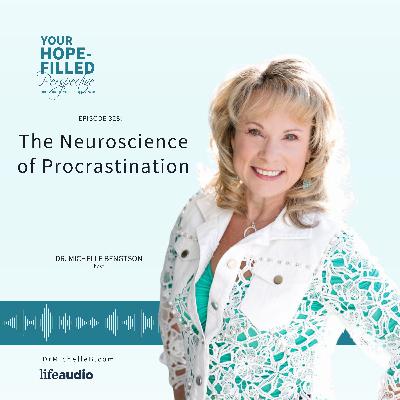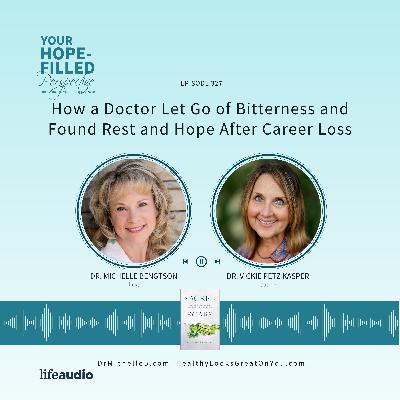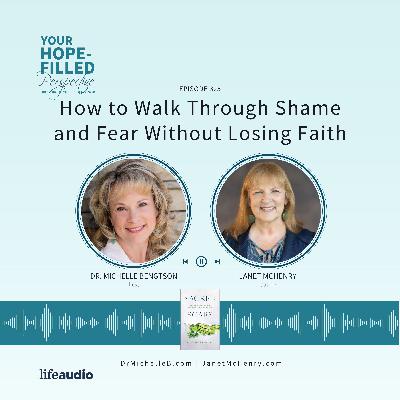The Role of Forgiveness in Healing the Brain and Heart: What Science and Scripture Reveal
Description
Episode Summary:
If you’ve ever struggled with forgiveness—whether that’s forgiving others, forgiving yourself, or even struggling with feeling forgiven by God—then this episode is for you. Jessica and I talk about The Role of Forgiveness in Healing the Brain and Heart.
Quotables from the episode:
- Science and scripture both affirm that forgiveness is vital for emotional, physical, and spiritual well-being. Forgiveness is more than a feeling—it’s a powerful decision that can transform your life.
- This topic is close to my heart because I’ve seen firsthand how forgiveness can set people free. I know many of our listeners and viewers carry deep wounds, and my prayer is that today’s conversation will bring encouragement and hope.
- Forgiveness is essential because it aligns us with God’s heart. We were created for relationships, but when hurt enters the picture, it creates emotional and spiritual wounds.
- Unforgiveness keeps us bound to that pain. It’s like drinking poison and expecting the other person to suffer.
- From a scientific perspective, studies show that holding onto unforgiveness increases stress hormones like cortisol, which negatively impacts brain function, weakens the immune system, and can even contribute to depression and anxiety.
- When we forgive, we release that toxic load, allowing our brains and bodies to function in a state of peace.
- As a neuropsychologist, I’ve also seen how unforgiveness affects brain chemistry. It triggers the fight-or-flight response, keeping us in a constant state of stress which can lead to depression, anxiety, discouragement, fear, even anger.
- But when we choose to forgive, our brain rewires itself toward healing and restoration.
- For years, I thought holding onto that anger would somehow hold the other person accountable. But instead, it only held me captive. When I finally chose to forgive, I experienced a peace I hadn’t known in years. And the beautiful thing was, God used that forgiveness to bring healing to my heart in ways I never expected.
- One of the biggest myths is that forgiveness means excusing or condoning what happened.
- Forgiveness is not saying that what happened was okay. It doesn’t mean forgetting or pretending it never happened. Instead, it’s releasing the burden of justice to God. Romans 12:19 reminds us, “Do not take revenge, my dear friends, but leave room for God’s wrath, for it is written: ‘It is mine to avenge; I will repay,’ says the Lord.”
- Another myth is that we have to feel ready to forgive before we do it. But forgiveness is an act of obedience, not an emotion. Often, the feelings follow the decision.
- Jesus didn’t tell us to forgive when we felt like it. He commanded us to forgive because He knows the weight it lifts off our souls. And something amazing happens when we take that step of obedience—our hearts begin to soften, and healing begins.
- The process of forgiveness starts with prayer. We have to be honest with God about our pain and ask Him for the strength to forgive. Then, we choose to release the offense. Sometimes, it’s a one-time decision; other times, it’s a daily process of surrendering it to God until the pain no longer has power over us.
- And sometimes, we need to verbalize forgiveness, even if it’s just between us and God. Saying, “Lord, I choose to forgive [person’s name] for [specific hurt]” helps solidify the decision in our hearts.
- And one of the hardest but most powerful steps is praying for the person who hurt us. Jesus told us in Matthew 5:44 , “Love your enemies and pray for those who persecute you.” It’s hard at first, but it shifts our hearts from bitterness to compassion.
- Forgiveness is not about the other person—it’s about your own freedom. It doesn’t mean what they did was right, but it means you’re choosing to release the burden and trust God with justice. Take it one step at a time, and know that you are never alone in the process.
Scripture References:
- Romans 12:19 reminds us, “Do not take revenge, my dear friends, but leave room for God’s wrath, for it is written: ‘It is mine to avenge; I will repay,’ says the Lord.”
Recommended Resources:
- Reframing Rejection: How Looking Through a Different Lens Changes Everything By Jessica Van Roekel
- Sacred Scars: Resting in God’s Promise That Your Past Is Not Wasted by Dr. Michelle Bengtson
- The Hem of His Garment: Reaching Out To God When Pain Overwhelms by Dr. Michelle Bengtson, winner AWSA 2024 Golden Scroll Christian Living Book of the Year and the 2024 Christian Literary Awards Reader’s Choice Award in the Christian Living and Non-Fiction categories
- YouVersion 5-Day Devotional Reaching Out To God When Pain Overwhelms
- Today is Going to be a Good Day: 90 Promises from God to Start Your Day Off Right by Dr. Michelle Bengtson, AWSA Member of the Year, winner of the AWSA 2023 Inspirational Gift Book of the Year Award, the 2024 Christian Literary Awards Reader’s Choice Award in the Devotional category, the 2023 Christian Literary Awards Reader’s Choice Award in four categories, and the Christian Literary Awards Henri Award for Devotionals
- YouVersion Devotional, Today is Going to be a Good Day version 1
- YouVersion Devotional, Today is Going to be a Good Day version 2
- Revive & Thrive Women’s Online Conference
- Revive & Thrive Summit 2
- Trusting God through Cancer Summit 1
- Trusting God through Cancer Summit 2
- Breaking Anxiety’s Grip: How to Reclaim the Peace God Promises by Dr. Michelle Bengtson, winner of the AWSA 2020 Best Christian Living Book First Place, the first place winner for the Best Christian Living Book, the 2020 Carolina Christian Writer’s Conference Contest winner for nonfiction, and winner of the 2021 Christian Literary Award’s Reader’s Choice Award in all four categories for which it was nominated (Non-Fiction Victorious Living, Christian Living Day By Day, Inspirational Breaking Free and Testimonial Justified by Grace categories.)
- YouVersion Bible Reading Plan for Breaking Anxiety’s Grip
- Breaking Anxiety’s Grip Free Study Guide
- Free PDF Resource: How to Fight Fearful/Anxious Thoughts and Win
- Hope Prevails: Insights from a Doctor’s Personal Journey Through Depression by Dr. Michelle Bengtson, winner of the Christian Literary Award Henri and Reader’s Choice Award
- Hope Prevails Bible Study by Dr. Michelle Bengtson, winner of the Christian Literary Award Reader’s Choice Award
- Free Webinar: Help for When You’re Feeling Blue
Social Media Links for Host and Guest:
Connect with Jessica Van Roekel:
Website / Instagram / Facebook
For more hope, stay connected with Dr. Bengtson at:
Order Book Sacred Scars / Order Book The Hem of His Garment / Order Book Today is Going to be a Good Day / Order Book Breaking Anxiety’s Grip / Order Book Hope Prevails / Website / Blog / Facebook / Twitter (@DrMBengtson) / LinkedIn / Instagram / Pinterest / YouTube / Pod

